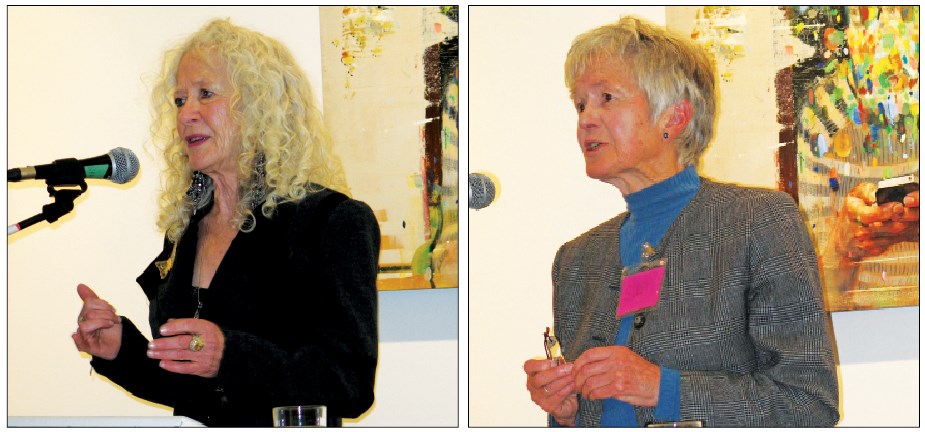A small, attentive crowd turned out at the Gibsons Public Art Gallery on Jan. 12 to hear speakers discuss why regulation for counselling therapies is greatly needed in British Columbia. They heard from two health professionals and two survivors of abusive therapy.
“Bad therapy undermines life with family and friends,” said Dr. Sue Penfold, a retired psychiatrist. “Abusive therapy can result in the loss of home, children, family or job.” She described many of the danger signals of unethical therapists, including crossing boundaries by drawing the client into the therapist’s personal life, asking for commitments or sex, giving gifts or loans of money to make the client beholden, or pressuring the client with unnecessary contact.
Janice Williams, a Gibsons artist and author who organized the public meeting, has personal experience with years of manipulation and abuse from a woman who was her therapist. After growing up with an abusive father, Williams turned to a therapist who became a mother figure.
“She seduced my trust,” Williams said. The therapist crossed many boundaries, even gifting Williams with a home, and later demanding it back. It took Williams years to recover, and she has since poured her story into her book, Mental Case 101 – Trussed Issues.
Social activist, artist and writer Bernadine Fox told a story similar to Williams. She used the term “predatory therapist” and said that her counsellor had an MA in psychology. The therapist called Fox “special,” made lengthy, intimate phone calls at night, employed her in the office to work off her debt and earn her more counselling and even broke up with her partner to be with Fox. Later she pressured Fox into a committed relationship in which they bought a house together.
Penfold described those entering therapy as extremely vulnerable and the described behaviours of these therapists went beyond ethical boundaries.
Three politicians were represented in the audience and all three – MLA Nicholas Simons, Liberal candidate Matthew Wilson and Green Party candidate Kim Darwin – expressed interest in the issue. “This will be one of the things that I’ll take on,” Simons said.
But what can regulation do? How are complaints handled? It was up to Dr. Glen Grigg, a psychotherapist, to grapple with the solution. He referred to an association of counselling therapists in B.C. that lists over 5,000 trained professionals.
“They’re determined to stop unnecessary suffering,” he said. Grigg recommended that such a regulation could be done by an order in cabinet under the Health Professions Act and he pointed to other countries and other provinces that have done this. After regulation, complaints against somebody who continues to practice would change in a big way, he told the audience. There would be ongoing quality insurance tools that would require therapists to undergo inspections every year according to rigorous standards, and if found lacking, they would be required to continue training.
He questioned why this had not already been done. “That’s what makes this [public meeting] evening so powerful and special,” he said.



